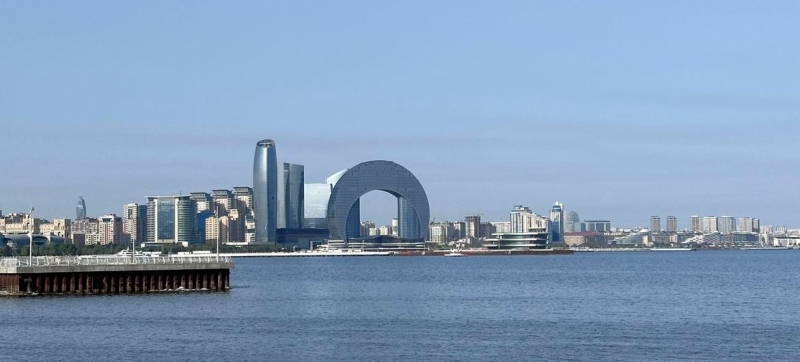
A view of Baku, the capital of Azerbaijan. Single carbon market standards agreed at COP29 in Baku Climate and environment
Climate finance for developing countries will be increased at the UN Climate Conference in Baku, COP29, Youssef Nassef, Director of the Adaptation Division of the UN Framework Convention on Climate Change (UNFCCC), told the UN News Service.
Increasing Climate Finance
“This COP session here in Azerbaijan is special. And I believe it is at a crossroads between the past and the future. So, you know, as part of this process… it was decided that about $100 billion a year will be provided to developing countries for climate action,” he said.
“And it is at this conference that this number will be increased. And this will be the main outcome of this session,” Nassef added.
International carbon market standards agreed
COP29 participants also agreed on standards for a single international carbon market, a key step towards finalising Article 6 of the Paris Agreement, said Simon Steele, Executive Secretary of the UNFCCC.
Article 6 regulates greenhouse gas emissions and carbon footprints. Carbon markets are mechanisms that provide incentives to reduce emissions and encourage businesses and governments to adopt cleaner production methods.
“Last night, parties agreed on strict standards for a centralised carbon market under the auspices of the UN. There is still much to do, but this is a good start – the result of more than 10 years of work in this process,” Steele said.
“Once these carbon markets are up and running, they will help countries implement their climate plans more quickly and cheaply, reducing emissions,” he added.
Adaptation to climate change
According to Nassef, the conference will pay significant attention to measures to adapt to climate change.
“The last COP in Dubai set for the first time adaptation targets to be achieved by 2030 or later, and there is a work programme to achieve those targets that should be completed next year,” he said.
“We are now in the middle of that work programme, and this COP session will provide recommendations on how to proceed next year. “It’s an intellectual exercise, it’s looking at how to measure progress, how to set up indicators that show you what you’ve achieved,” Nassef added.
Azerbaijan has a lot to offer
The UNFCCC representative noted that Azerbaijan, the host country for COP29, “has a lot to offer in terms of experience in dealing with climate change and how to deal with it.”
“Azerbaijan has a coastline on the Caspian Sea, which is vulnerable to rising sea levels and its impact on infrastructure, and at the same time, Azerbaijan has a variety of different climate zones, from coastal to mountainous,” he said. he.
Nassef added that Azerbaijan is a country that “understands the fossil fuel industry,” but also understands the vulnerability associated with it.
